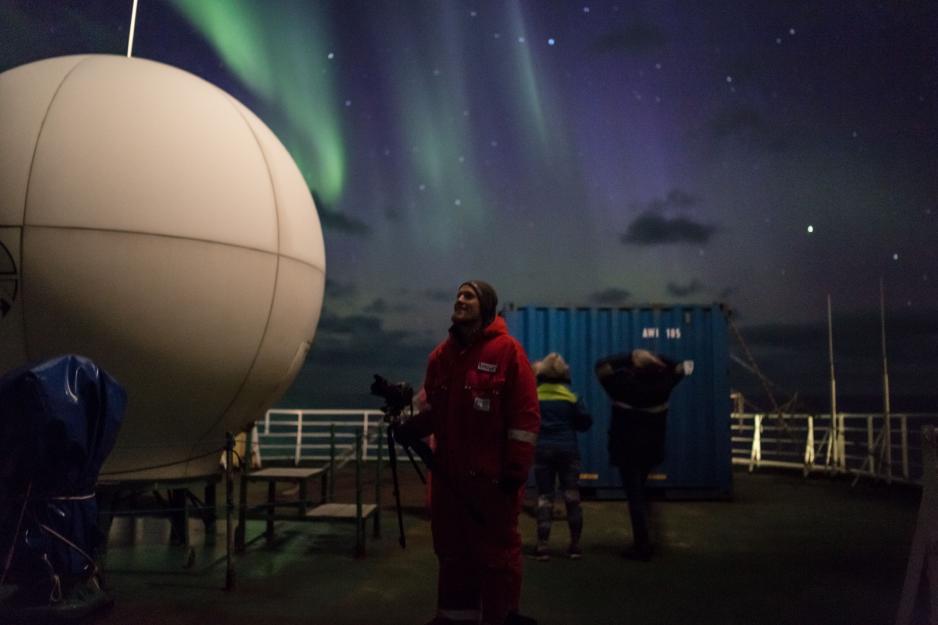Germany to host Second Arctic Science Ministerial

The second Arctic Science Ministerial will take place in Berlin, Germany, and work towards fostering international collaboration on Arctic science.
"The Berlin Ministerial, jointly organised by Finland, Germany, and the European Commission, is a logical follow-up to the very successful first Arctic Science Ministerial in 2016," says Volker Rachold, head of the German Arctic Office at the Alfred Wegener Institute, who is supporting the German Federal Ministry of Education and Research, the official host of the event. "The 2nd Arctic Science Ministerial will consist of two key events: an Arctic Science Forum on 25 October and the official ministerial meeting on 26 October", Dr Rachold adds.
Not only public officials will thus participate but also scientists as well as representatives from the Arctic region, especially from indigenous peoples’ organization, he adds. Representatives from 30 countries and 6 indigenous peoples’ organisations will attend the event, the official homepage of the 2nd Arctic Science Ministerial reads. While the Arctic Science Forum is not open for the general public, a live webcast will be provided.
Follow-up event
The Science Ministerial meeting in Berlin will be a follow-up event to the first Arctic Science Ministerial, which took place in Washington, DC in September 2016. Back then, science representatives from 25 countries, the EU, and from indigenous peoples’ organisations gathered to discuss Arctic science cooperation, which resulted in a Joint Statement of Ministers.
Also this time the intention is to bring together ministers of science, chief science advisors, and other high-level officials from countries around the world, as well as representatives from indigenous groups, to deepen international collaboration to address large-scale research questions and increase the pace of discovery in the Arctic.
Themes of the second Arctic Science Ministerial
Also thematically the Berlin meeting follows in the footsteps of the first Ministerial. The following three themes will be discussed on the two days in October:
- Strengthening, integrating, and sustaining Arctic observations, facilitating access to Arctic data, and sharing Arctic research infrastructure
- Understanding regional and global dynamics of Arctic change
- Assessing vulnerability and building resilience of Arctic environments and societies
Rationale of Arctic Science Ministerials
"Arctic scientific research takes a lot of effort given the vastness of the region and difficulties in accessing often remote areas with harsh weather conditions and only minimal infrastructure", Dr Rachold explains. Further, the rapid changes in the Arctic region are closely interlinked with global processes and systems, both in relation to the underlying causes of Arctic change as well as the impacts of a warming Arctic on the globe’s climate and weather system. Thus, "international collaboration between national observing and research efforts is a necessity in order to advance our knowledge about the causes and nature of impacts on communities and ecosystems in the Arctic and to enhance our predictive capabilities to inform policy-making processes", he adds.
In short, an international network of Arctic research is necessary to address the complex and cost-intensive interdisciplinary Arctic research efforts to gain an understanding of past and future processes in the region and their drivers and impacts beyond the region. The overall aim of the Second Science Ministers Meeting is thus "to increase the capacity to cope with the grand challenges facing society in the Arctic and to promote further scientific cooperation among a large number of countries and representatives of Indigenous Peoples", as the official homepage reads. The outcomes of the meeting will be published in form of a joint statement on the future of Arctic research.
Separate from Arctic Council, but same goals
The Arctic Science Ministerial is not affiliated with the Arctic Council but science, research, and education are strong priorities of Arctic Council Working Groups and Arctic states themselves. It is surely also not by accident that the first Arctic Science Ministerial was organised by the US, which at the time held the chairmanship of the Arctic Council. Accordingly, the current chair, Finland, is co-organising the second Ministerial.
All Arctic states, Permanent Participants (i.e. indigenous peoples’ organisations), and observer states to the Arctic Council have been invited to Berlin. Not least, also the Arctic Council is actively fostering international Arctic science collaboration; in 2017 the Agreement on Enhancing International Arctic Scientific Cooperation was adopted by the eight member states of the Arctic Council.
Strong German Arctic research efforts
For Germany, hosting the Second Arctic Science Ministerial is a great opportunity to exchange with other Arctic science actors and to showcase its impressive Arctic research efforts. Germany is one of the leading countries in supporting and conducting polar research, especially with its renowned Alfred Wegener Institute Helmholtz Centre for Polar and Marine Research (AWI).
Germany has built up an impressive Arctic research infrastructure: AWI operates the icebreaker Polarstern and a second icebreaker – the Polarstern II – is planned to be commissioned by 2020. Further, AWI runs the AWIPEV Arctic research base in Svalbard in cooperation with the French Polar Institute Paul Emile Victor (IPEV).
